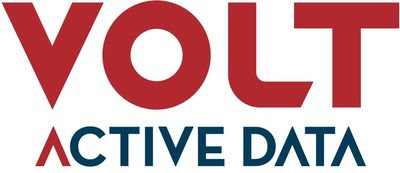MONACO, April 27, 2022 /PRNewswire/ — Huawei held the Global Data Center Facility Forum 2022, with the theme of “Smart DC, Building the Future”, on April 26 in Monaco to drive sustainability in the data center industry. The conference convened more than 200 business leaders, industry experts, clients, and partners from around the world to establish valuable connections and discuss key issues facing the rapidly changing industry, such as decarbonization and digitalization.

Charles Yang, Senior Vice President of Huawei and CEO of Huawei Data Center Facility Team, said in his opening remarks that as we enter the intelligent era and carbon neutrality has become the global shared mission, data centers will see changes in the service form, energy supply, and operation and maintenance models. Huawei Data Centre Facility Team will embrace the changes by optimizing organizational structure, continuously investing in innovation, and building a healthy business ecosystem to drive the sustainable development of the data center industry.
Green data centers play a critical role in achieving net-zero goals. In pursuit of green and low-carbon data centers, Huawei believes that data center facilities need to go green throughout the life cycle. It means the facility features a green construction with a prefabricated modular architecture, a green cooling solution to lower PUE, a green power supply with ultra-high power density, and AI-enabled green management.
When it comes to the role of green ICT playing in Europe’s path to decarbonization, He Bo, President of Huawei Digital Power Western Europe, pointed out that low-carbon ICT infrastructure, such as data centers, will play an important role to support for Europe to achieve the goal of “Carbon Neutrality by 2050” in the future. By integrating digital and power electronics technologies, Huawei provides innovative solutions such as fast delivery, extreme PUE, and centralized energy storage to create low-carbon data centers and contribute to a greener world.
In his keynote on Next-Generation DC, Sanjay Kumar Sainani, Global Senior Vice President and Chief Technology Officer (CTO) of Huawei Data Center Business noted that we envision the next generation center to be converged, low carbon, and smart. Four innovations – Bit innovation, Watt innovation, Heat innovation, and Architecture innovation – will support future-oriented, sustainable data centers.
Other industry experts also shared their insights into how to power the green and digital transition of the data center industry at the event. Simon McCormick, CTO of Echelon, introduced their digital transformation path towards carbon neutrality.
Kim Gunnelius, COO and Co-founder at Ficolo, talked about operating data centers with 100% green power and lower PUE, and enabling the industry to reduce its carbon footprint through data centers.
Xavier Matagne, CTO of Africa Data Centres, highlighted that modular and prefabricated construction excels at high quality, easy site management, low risk, and green site operation compared with traditional solutions.
Prescott Augustus GAYLORD, Senior Vice President and Head of Sustainability at DBS, shared practices in achieving decarbonization and digitalization from a financial institution perspective.
Highlights at Datacloud Global Congress 2022
Huawei Digital Power showcased low-carbon, smart data center solutions and joined conversations around the trends that will shape the data center industry at Datacloud Global Congress 2022, the leading event in the data center and ICT sectors that was held in Monaco from 25-27 April.
Huawei exhibited the low-carbon, smart data center solutions at the booth, including the PowerPod+Smart Li power supply system for improved energy efficiency, the indirect evaporative cooling solution for the minimized use of potable water, and the smart modular DC for fast deployment and flexible scalability.
Reducing the carbon footprint of power-consuming data centers holds the key to mitigating climate change. Huawei has officially joined the IMasons Climate Accord (ICA), a coalition designed to govern a methodology to measure and reduce the carbon in infrastructure through products, power, and materials, to highlight its commitment to a low carbon, smart society.
Moving forward, Huawei will cooperate closely with partners such as consulting, design, engineering companies, and suppliers, to build an open and win-win industrial ecosystem and promote the sustainable development of the data center industry.
Photo – https://mma.prnewswire.com/




